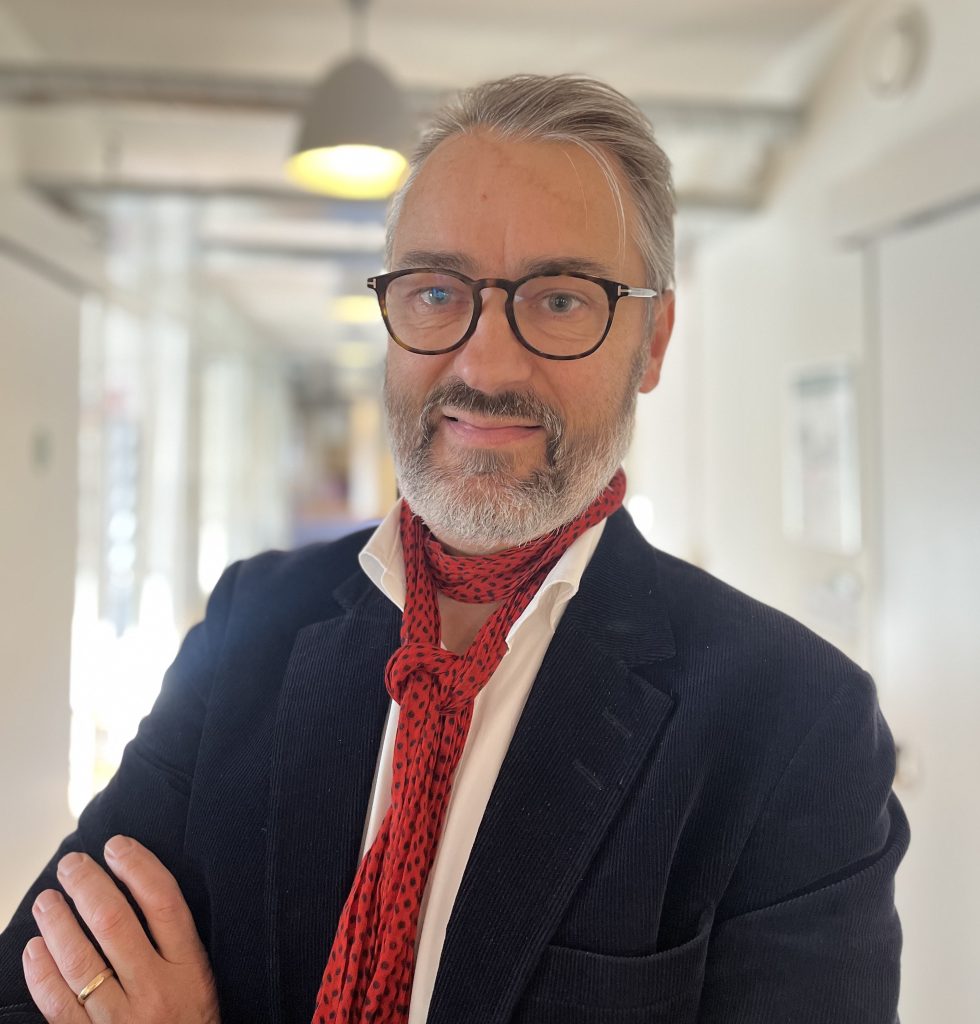Science and Law: The Path to Becoming a Patent Attorney
It is a Friday afternoon at Norens’ patent office in central Stockholm. The employees exude a calm yet unwavering focus. This is where Anders Bratt works as a patent attorney with a focus on life sciences. He is also the vice CEO of Norens. A wide spectrum of patents, anything from novel drugs and diagnostic kits to software for medical devices, can land on his desk. It quickly becomes evident that Anders is very content with his job and is eager to promote this career option to PhD graduates.
“It is intellectually stimulating, exciting to learn about new technology, and rewarding to see clients grow,” he says with a smile.

From the lab to the court
Anders studied Molecular Biology, eventually culminating in a Ph.D. from Karolinska Institutet in 2005. During his doctoral studies, his research interests centered on angiogenesis and tumor biology, resulting in the publication of several impactful articles. He found that angiomotin participates in the regulation of endothelial cell-cell junctions.
However, as Anders progressed in his academic journey, he found the prospect of continuing in academia as a postdoctoral researcher less appealing. Wet lab-intensive days and a limited job market for postdocs led him to consider an alternative path. It was during this reflection that he began contemplating a career as a patent attorney. This was a career that involved solving challenging tasks related to innovation in life science but without lab work.
“You need to be an engineer, molecular biologist, biochemist or similar, and you need training and work experience in a patent attorney’s office,” he says.
To use the title European Patent Attorney, one also has to take an Europe-standardized exam. Five years after becoming a PhD in Medical Sciences, Anders became a certified European Patent Attorney. Up until that point he worked as a patent consultant gaining the necessary practical experience.
While it is possible to file patent applications in Sweden, the majority of patent applications are submitted to the European Patent Office, located in Munich, Germany.
“This means that the working language is English, and that one does not need advanced Swedish skills for this role,” Anders points out.
Among skills transferable from a PhD background, Anders mentions reading and writing skills with attention to detail. Additionally, robust analytical skills and the capacity to articulate arguments effectively are also essential in this job. An understanding of the scientific process is certainly also beneficial. However, as a patent attorney, one must also learn cost-effective time management to good service for clients. Comparatively, a patent attorney goes less deeply into specific research areas than a Ph.D. student but enjoys a broader spectrum of research topics.
A day as a patent attorney
Anders tells me more about what a typical day at the office looks like. “In the morning, I might do some analysis and writing, communication with other patent attorneys, for example, based in the US. Since I am also the vice CEO, my afternoons are usually busy with organizational meetings or with clients,” he explains. “I enjoy working with people. Many clients are start-ups, often from universities. It is a pleasure to help them protect their findings and innovations and see them grow. Some patents are harder to get than others because there is a closely related publication available. It is our job to find a way around it.”
Finally, I am curious about what the first weeks at work would look like for a newly graduated PhD that embarks on the journey of becoming a patent attorney.
“In the beginning, the person will have close supervision. The first task might be to read and analyse a patent document or join in on a meeting with a client. The next task could be to write a first draft for a patent application which will be checked by a certified patent attorney. The aim is to become independent. However, if needed, there is a possibility to consult with colleagues later in the career as well,” he explains.
“This career is fulfilling. On average, I had one big breakthrough per year during my PhD. As a patent attorney, I have one every month.”


0 comments